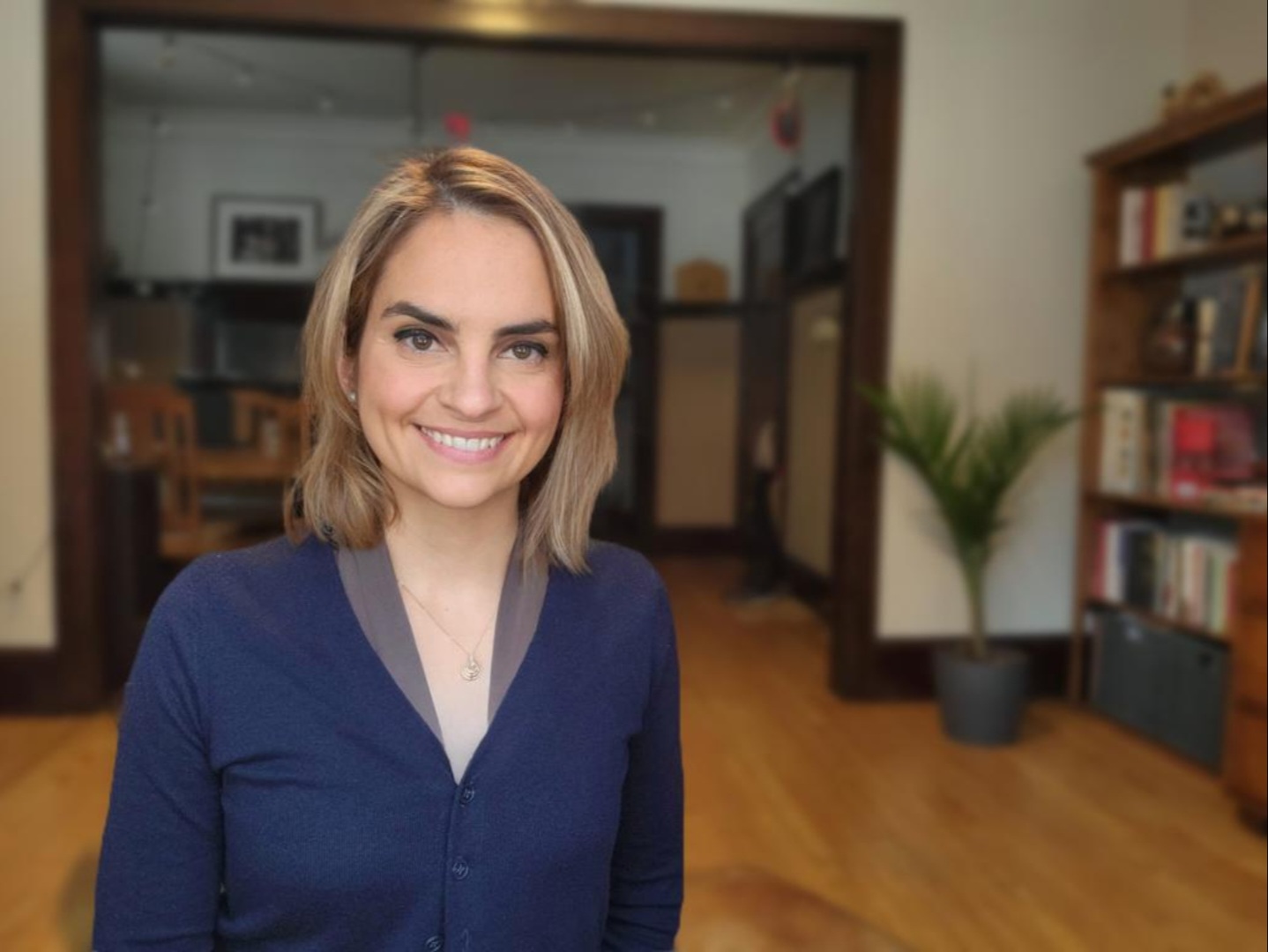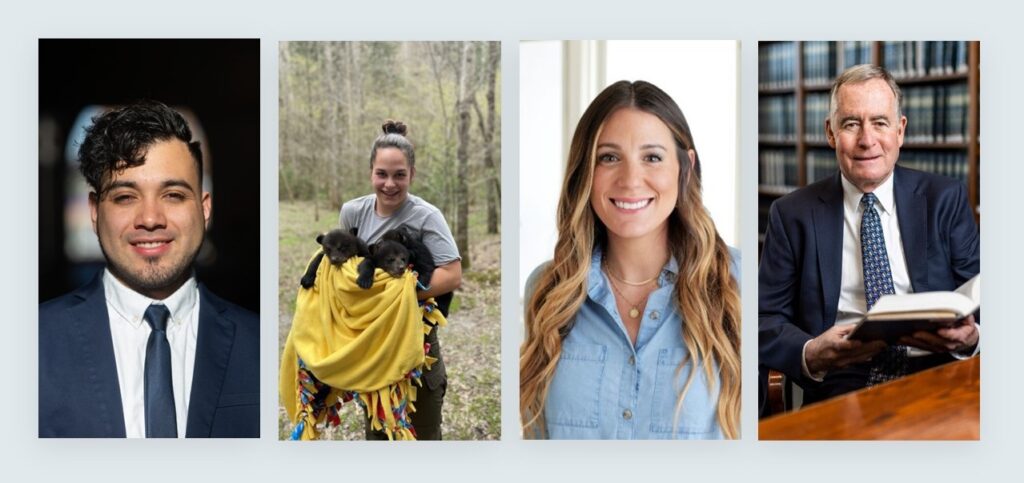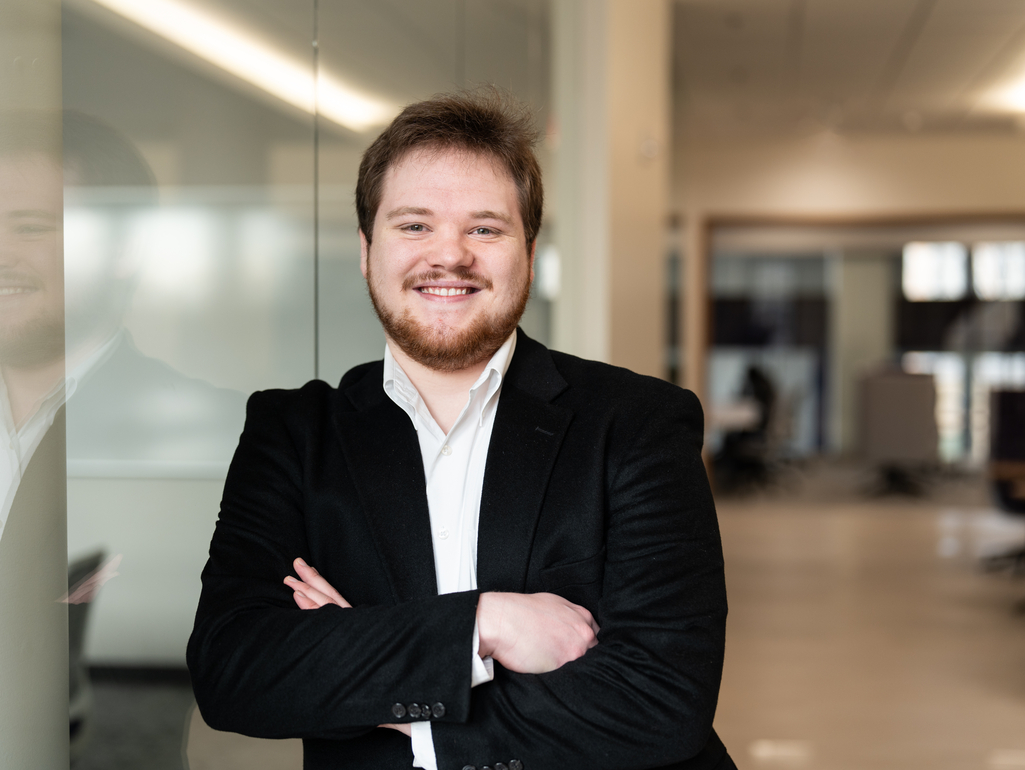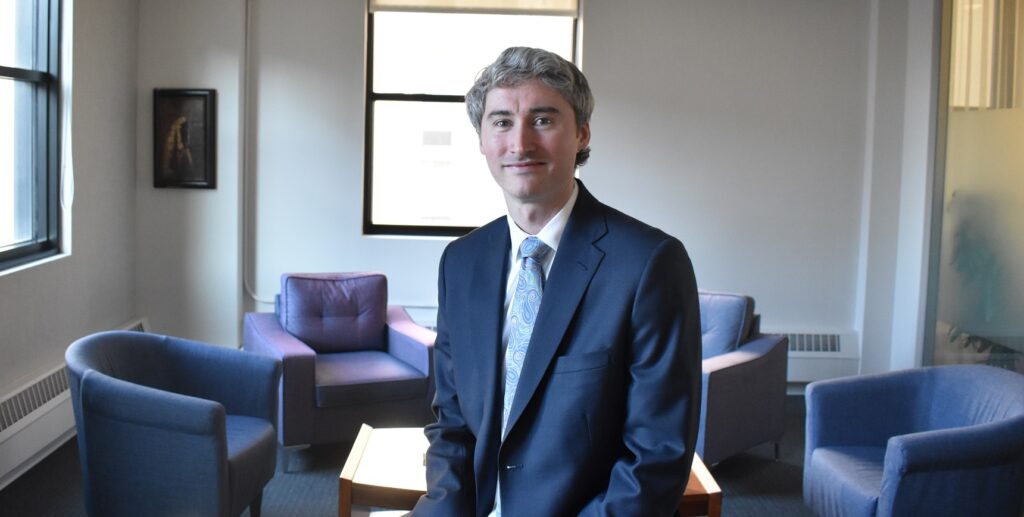Medical-legal partnerships to serve low-income clients and improve the overall quality of life in underserved communities began in the early 1990s based on the idea that there is a correlation between health care and legal services. A health issue, like a respiratory condition, for example, can be a legal issue if a landlord refuses to take care of mold in an apartment. Similarly, a legal issue, perhaps due to stress, can worsen a preexisting health problem.
Mid-Minnesota Legal Aid (MMLA) has medical-legal partnerships across the state through which it assigns one of its attorneys to a hospital or clinic to work directly with health care professionals and social workers and assist patients with legal needs.
Due to staff turnover last year, MMLA didn’t have an attorney to serve the Willmar, Minnesota, area, so they filled the position through the St. Thomas School of Law Archbishop Ireland Justice Fellows program.
The program places newly licensed St. Thomas Law graduates, like Zuzana Menzlova '20 J.D., in one-year positions to work in the justice gap, addressing the most pressing civil legal issues facing the poor.
Menzlova says that once she learned where she would be placed, she was excited to join MMLA and eager to get to work.
“I reached out to local health care providers to introduce myself and let them know that they can refer their patients with legal needs to me,” Menzlova said.
Soon, she started to get referrals and meet with clients.
“I never know what to expect,” Menzlova said about the variety of cases she has handled. “I’ve helped clients to file for their Social Security disability, get custody of a child, support them through their divorce, fix their housing issues and face their evictions.”
She says her clients tell her how thankful they are to have received help. Some say their legal issue may have gone unaddressed or likely would have had a different outcome, if not for her assistance.
“Many of our clients would feel intimidated or could be financially unable to go to a regular law office,” Menzlova said. “However, they trust their doctors and are comfortable going to their clinics. Having an attorney directly at the clinic helps to cross this barrier and makes clients feel we are part of a professional team they can rely on.”
In addition to medical-legal partnerships, Menzlova works on other MMLA initiatives, like its mobile legal aid clinic program, also known as “Justice Buses.” The vans take her and her colleagues to small towns where the residents may not know that free legal services are available to them. And if they do, the traveling offices bring an attorney to those who may not have transportation, like seniors or people with disabilities.
“I’ve noticed that usually kids come first as they are so curious. Then they report our presence at home,” she said. “We make sure to tell them that their parents can come and get free legal advice.”
Many of Menzlova’s clients in greater Minnesota are agricultural workers who need assistance with immigration issues.
“Often, we are working across a language barrier and cultural divide,” she said. “But when I see the expression on someone’s face change, I know there has been a connection. My clients see that I understand their problem and we work it out. It’s a process of building a relationship as much as it is a legal exercise.”
Menzlova’s yearlong fellowship will end in January, however MMLA recently offered her an extension.
"This fellowship has been a great way to continue my relationship with St. Thomas and also serve the people of Minnesota," Menzlova said. "I am grateful for all the supportive people who have made this experience possible."







